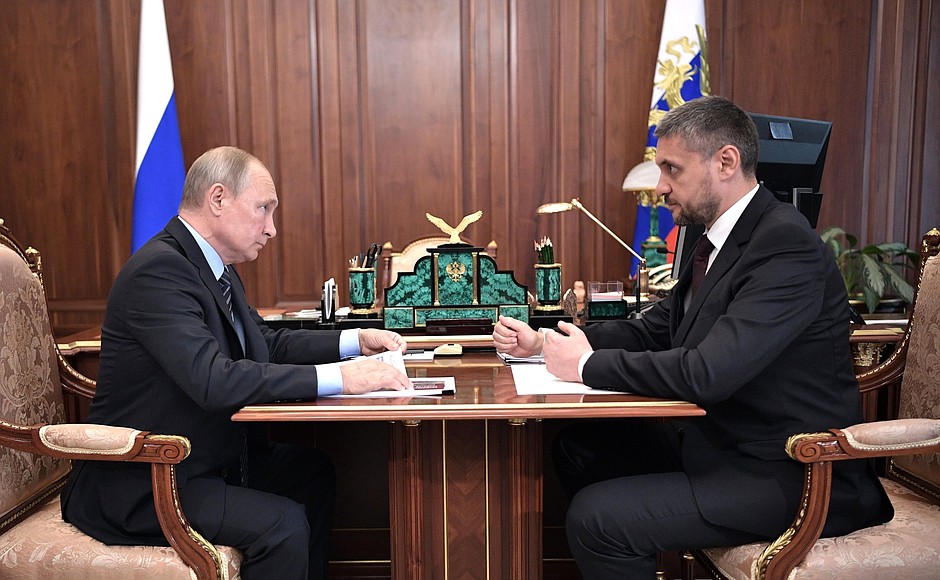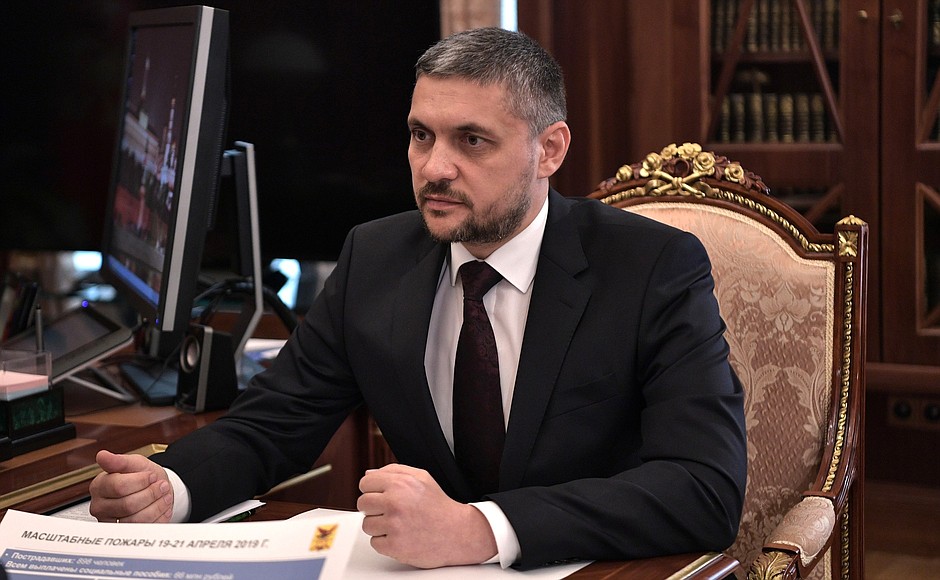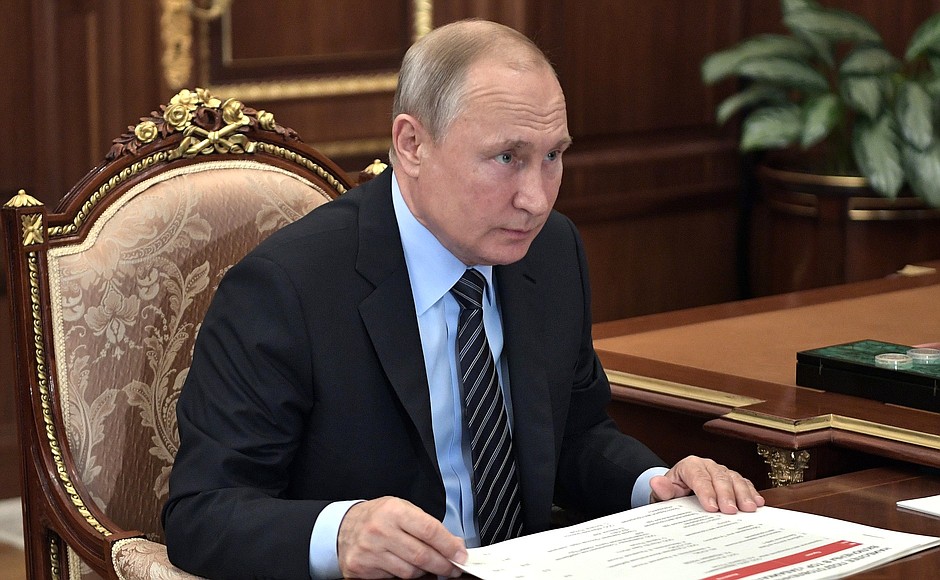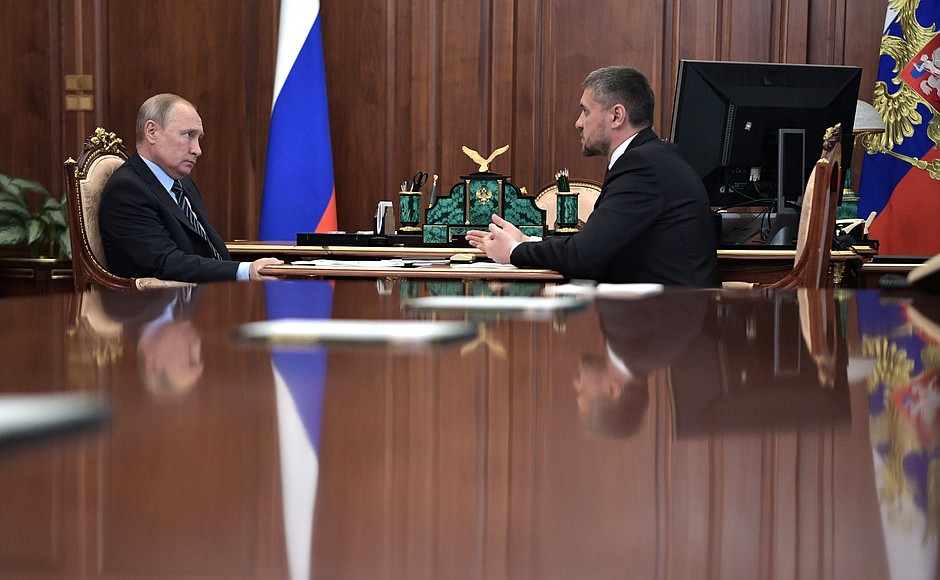Alexander Osipov reported that close to 900 people had been affected and nearly 120 families had lost their houses following the tremendous wildfires in April 2019. To date, 85 families have been provided with housing, and 33 families are now in the process of building or buying housing. Reconstruction works are underway on bridges, water intake systems and social facilities. The key priority is to assist with the restoration of the agricultural facilities: the 120 cattle camps that have been destroyed by fires are being rebuilt.
The Acting Governor thanked the President for signing the Executive Order on wildfire relief measures in the Trans-Baikal Territory, which has helped in the reconstruction of the destroyed facilities.
Mr Osipov noted that a socioeconomic development plan had been prepared for the territory in association with the Ministry for the Development of the Russian Far East and other federal ministries. It provides for the investment of 1.3 trillion rubles, which will almost double the regional GDP and help create 60,000 new jobs. The implementation of this plan will also allow decreasing subsidies to the region by one-third by 2024 and one-half by 2026, so that ultimately the Trans-Baikal Territory will become a non-subsidised region. The Acting Governor also reported on the creation of a priority development area.
Alexander Osipov, who was appointed acting governor in October 2018, said it is the first time for several years that industrial production, the retail trade and the volume of paid services had started growing, and that the unemployment level had decreased by 1 percent.
Construction and renovation projects are underway at over 120 major facilities within the framework of national projects, including schools, kindergartens, physical fitness and sports facilities.
The Acting Governor also updated the President on the plans for the renovation of the social infrastructure, which calls for federal assistance, just as in the case of housing and utilities. Only 100 out of the 880 populated localities in the region have a public water supply system, but its depreciation rate is estimated at 80 percent. The depreciation rate in power generation is 80 percent as well. This calls for adopting a special programme, which is being prepared and coordinated with the Ministry of Construction, as well as for providing support for the reconstruction of housing and utilities infrastructure.
Other matters, including the construction of a mining and smelting facility at the Udokan copper deposit, as well as high energy prices in the Trans-Baikal Territory were also discussed.




